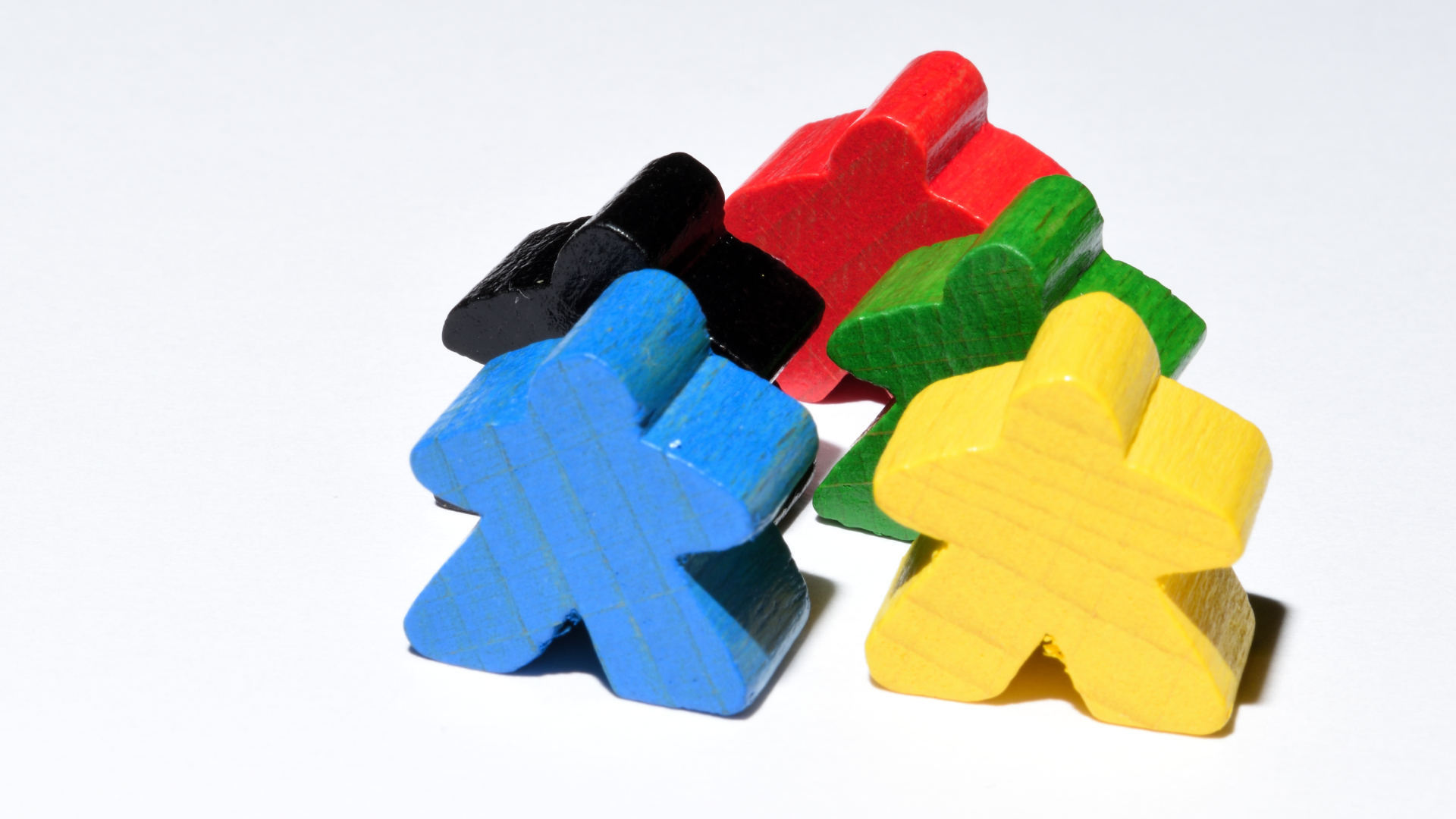Intellectual property law has come for the word 'Meeple'

Not even the little wooden board game guys are safe.
If you're in any proximity to board game culture, you're probably aware of meeples—those stylized little wooden figure guys, popularized by Carcassonne and worker placement games that followed, to the point that they've become a kind of omnipresent cultural icon for board games as a whole. There's a custom meeple cottage industry. There are meeple-themed board game cafes. There are dozens of board games with "meeple" in the title. Meeples are for the people.
At least, that was the assumption until just last month. As reported by BoardGameWire, board game publisher Cogito Ergo Meeple—see, it's everywhere—announced in May that it was rebranding both the company and its recently-crowdfunded game Meeple Inc after receiving a cease-and-desist email from Hans im Glück, the publisher of Carcassonne. Cogito Ergo Meeple is now Cotswold Games, publisher of Tabletop Inc.
Despite the ubiquity of meeples, it turns out that Hans im Glück, after nearly a decade of attempts, succeeded in locking down the EU trademark on the term in 2019, as well as the now-standardized meeple piece shape created for Carcassonne in 2000. While Hans im Glück CEO Moritz Brunnhofer told BoardGameWire that the publisher had enforced its trademark in "a few" earlier cases, Meeple Inc feels like a conspicuous choice amidst the sea of apparently illicit meepleware: By the end of its crowdfunding campaign for Tabletop Inc on Gamefound, Cotswold Games had raised over $200,000.
It's worth noting that, while the popular meeple silhouette originated with Carcassonne in 2000, the term "meeple" itself didn't. As recorded at the blog Don't Eat the Meeples—again, everywhere—the term can be credibly traced back through Usenet posts from shortly after Carcassonne's release. According to a post from December 3, 2000, the credit for "meeple" allegedly belongs to one Alison Hansel, who accidentally melded the words "my people" when referring to the pieces that Carcassonne officially called "followers."
While the future of meeples is suddenly uncertain, it seems like Brunnhofer is fully aware of the potential board gamer outrage stoked by the cease-and-desist letter. "If someone asks us nicely," Brunnhofer told BoardGameWire, "we will allow the use [of meeples] and based on the intent to commercialise it or not, proceed." Brunnhofer also said he'd decided to apologize to Cotswold Games.
